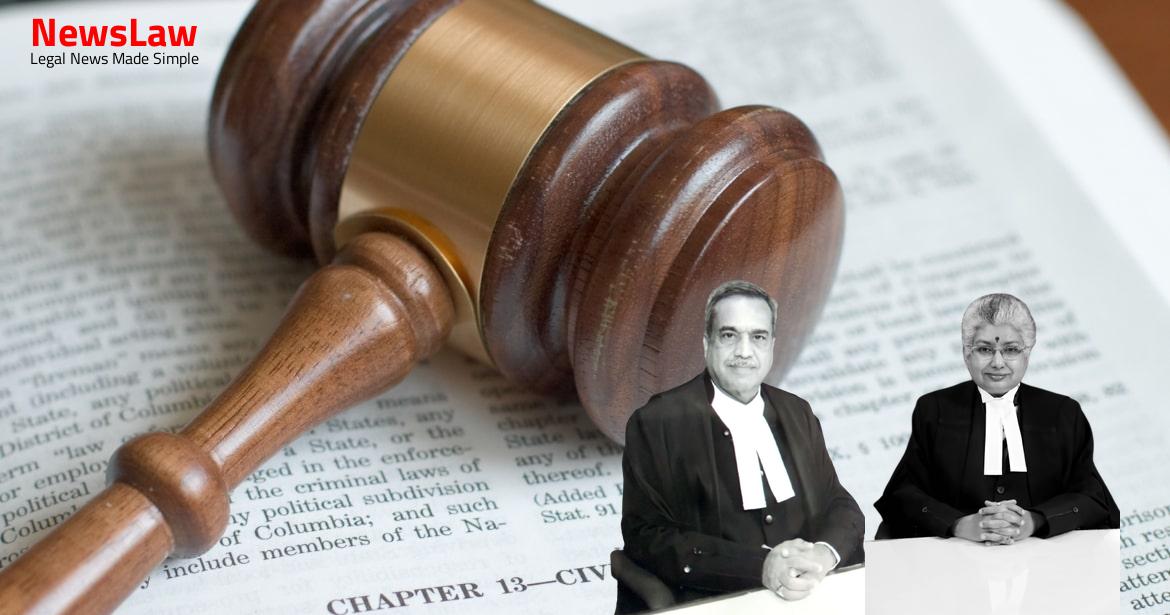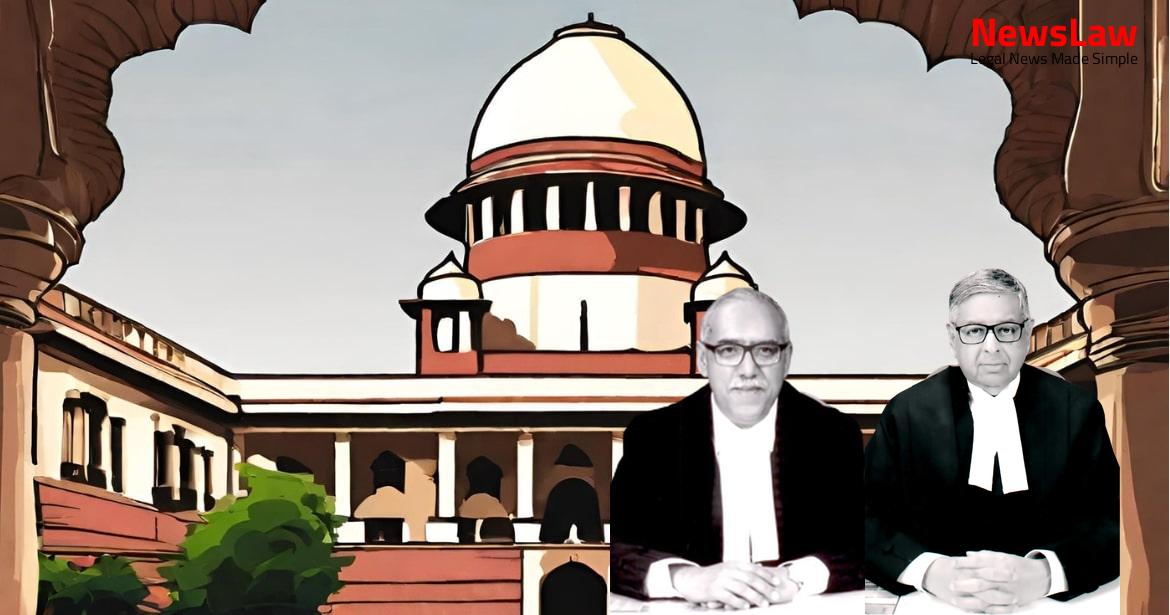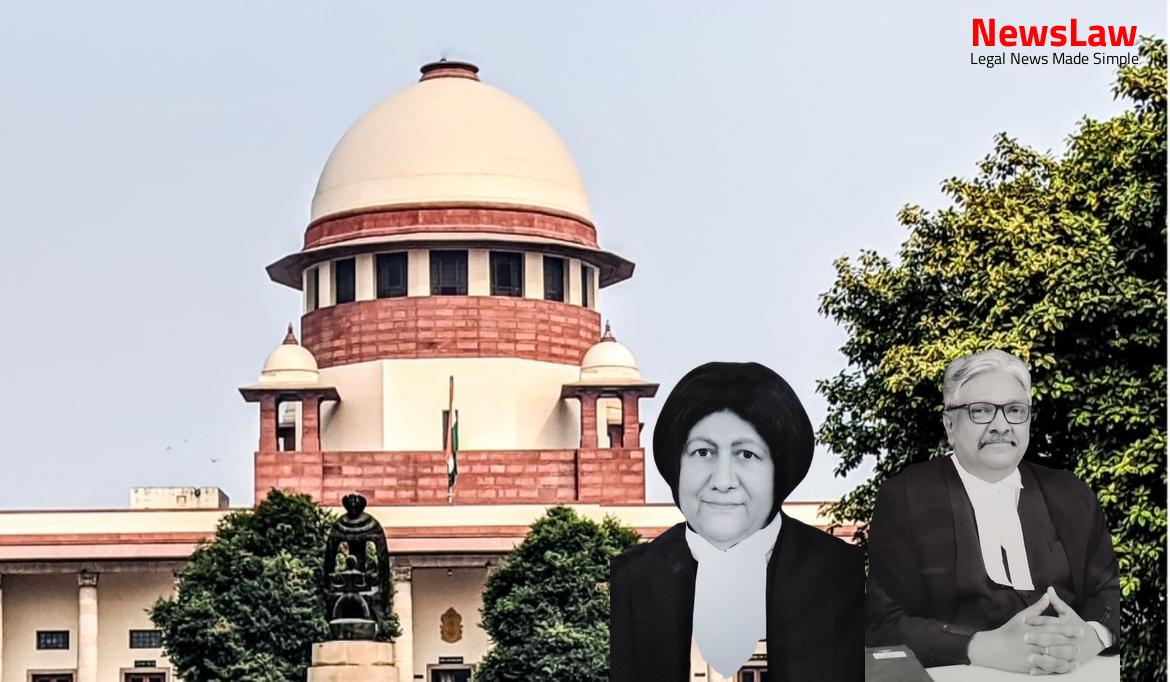Explore a fascinating legal case where the court’s thorough analysis of jurisdictional disputes played a crucial role in shaping the outcome. In this blog, we will delve into the court’s nuanced legal reasoning and the implications it had on the parties involved. Follow along for a deep dive into the world of legal intricacies.
Facts
- The workman filed I.D. No 219/1998 before the Labour Court regarding his dismissal.
- The management dismissed the workman from service w.e.f. 09.1998.
- The workman filed an application under Section 33(C)(2) of the ID Act for recovery of wages from 01.01.1998 to 30.04.2005.
- The application under Section 33(C)(2) was dismissed by the Labour Court due to the workman not reporting for duty at Jharsuguda after a transfer.
- The workman challenged the Labour Court’s order via W.P. No 5271/2009, seeking reinstatement and back wages.
- The Labour Court modified the dismissal order, reinstated the workman with conditions, and directed the workman to report to Jharsuguda within a month.
- The management filed W.P. No 2955/2001 to challenge the Labour Court’s order, which was temporarily suspended by the High Court.
- The workman was relieved from Visakhapatnam on 14.08.1997 as a Junior Supervisor after a transfer dispute.
- The management challenged the original award passed by the Labour Court in a writ petition.
- The workman also filed an application under Section 33(C)(2) which was rejected by the Labour Court.
- The Single Judge dismissed the writ petition of the management citing lack of permission to raise territorial jurisdiction issues for the first time.
- The Single Judge allowed the workman’s writ petition, setting aside the Labour Court’s rejection of the Section 33(C)(2) application.
- The Single Judge ruled in favor of the workman, stating entitlement to all benefits from the Tribunal’s previous order.
Also Read: Challenging Legal Presumptions in Negotiable Instrument Cases
Analysis
- Management challenged the award passed by the Labour Court.
- The only submission made was regarding territorial jurisdiction.
- The learned Single Judge rejected the submission.
- The learned Single Judge dismissed the writ petition against the original judgment and award by the Labour Court.
- No interference is warranted with the order passed by the learned Single Judge.
- The Single Judge did not consider the writ petition on merits
- There was no discussion on the order passed by the Labour Court rejecting the 33(C)(2) application
- The writ petition of the workman was allowed without specific findings on the Labour Court’s order
Also Read: Legal Analysis of Admission Irregularities in Educational Institutions
Decision
- Civil Appeals arising out of Writ Petition No 2955/2001 have been dismissed.
- The matter is remitted back to the learned Single Judge to decide Writ Petition No 5271/2009 afresh within six months.
- All concerned are directed to cooperate with the Single Judge for early disposal of the writ petition.
- If any party is not cooperating, the High Court can proceed with the hearing ex-parte.
- No costs are imposed, and the Registry is directed to communicate the order to the High Court.
- The impugned judgment allowing Writ Petition No 5271/2009 is quashed and set aside.
Also Read: Land Compensation Enhancement Case Summary
Case Title: M/S MITRA S.P. (P) LTD. Vs. DHIREN KUMAR (2022 INSC 795)
Case Number: C.A. No.-004863-004866 / 2022



